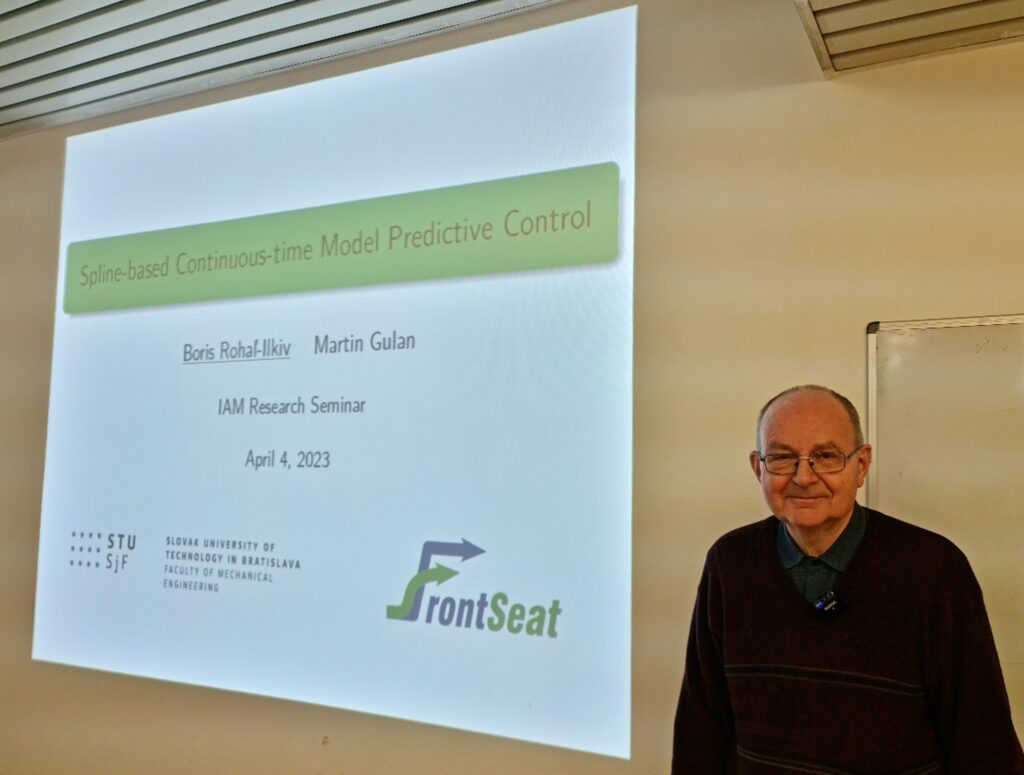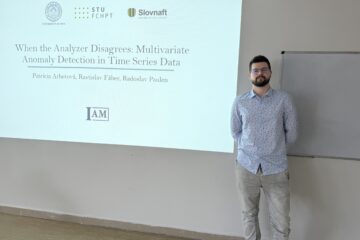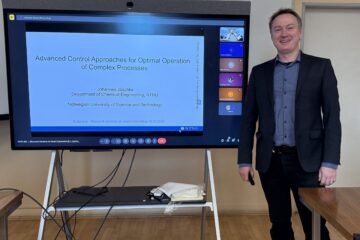On April 14, we organized a scientific seminar on “Spline-based continuous-time MPC“. The scientific seminar was led by Boris Rohaľ-Ilkiv, a professor at the Slovak University of Technology in Bratislava. The scientific seminar was organized in the framework of the FrontSeat project as part of the seminar series on “Research Seminar on Smart Cybernetics”.

Abstract:
This contribution investigates one way how to reduce computational complexity of continuous-time model predictive control (MPC) laws by representing the input/output signals and related models using the apparatus of B-spline functions. Such approximation allows to implement the resulting feedback law more efficiently, requiring less online computational effort. As a result, the proposed controller formulates the control signals as continuous polynomial spline functions. All constraints assumed over the prediction horizon are then expressed as constraints acting on the B-splines control polygon vertices. The performance of the proposed theoretical framework has been demonstrated with several real-time experiments using the well-known 2DOF laboratory helicopter setup. The aim of the presented experiments was to track given step-like reference trajectories for pitch and yaw angles under notable parameter uncertainties. Thanks to the presented framework, the computational complexity was significantly reduced, indicating the potential of the proposed concept for real-time applications using embedded control hardware.
This project has received funding from the European Union’s Horizon under grant no. 101079342 (Fostering Opportunities Towards Slovak Excellence in Advanced Control for Smart Industries).





0 Comments